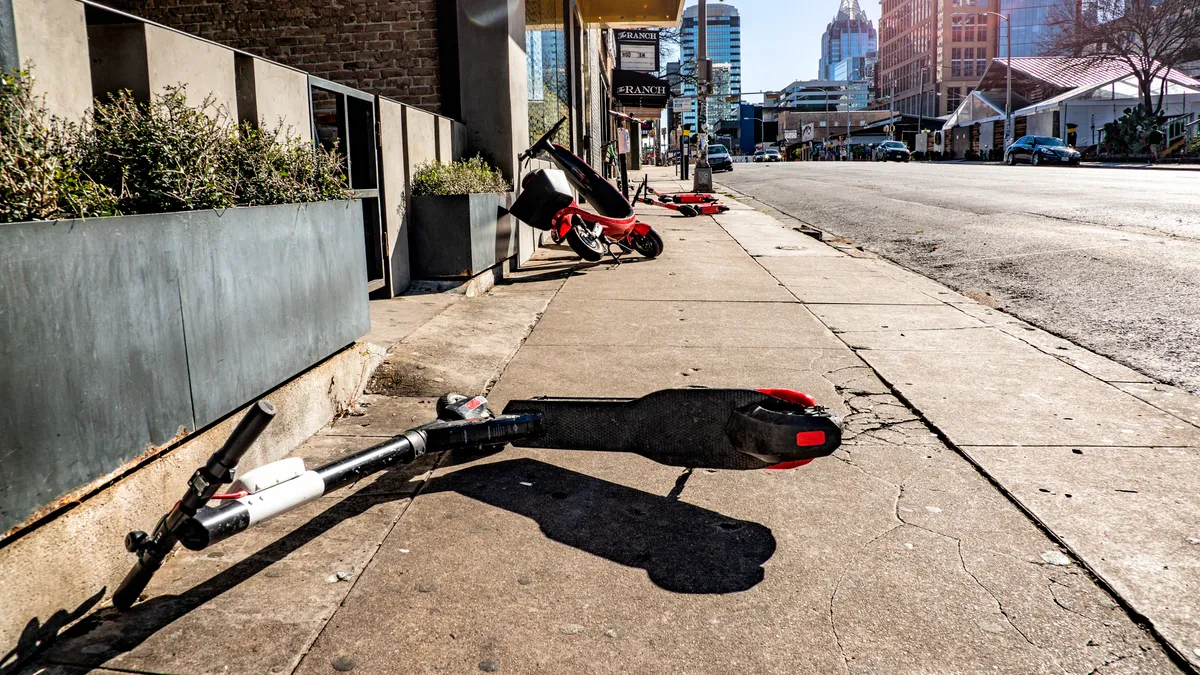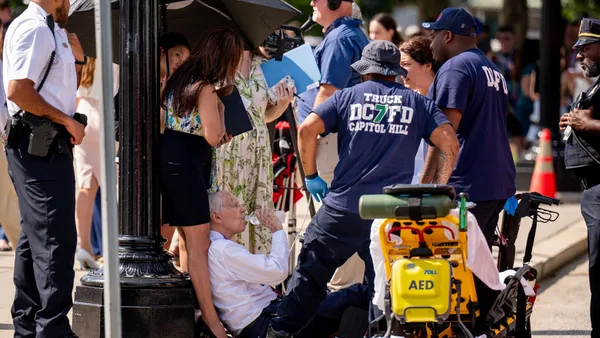Dive Brief:
- In order for cities to take an "innovative" approach to curbing the opioid epidemic, they must tackle the problem as a mental health issue and find strategic partners to assist in efforts, said Dayton, OH Mayor Nan Whaley in an interview with Smart Cities Dive at South by Southwest (SXSW) in Austin, TX.
- The city of Dayton is working with Google subsidiary Verily and its nonprofit arm OneFifteen to open a high-tech treatment campus that will "house clinical services, recovery housing and mixed-use facilities to address the needs of patients and the local community," according to Verily. OneFifteen will track addiction trends and leverage analytics to improve behavioral health and the overall health of the city.
- In a separate interview, Columbia, SC Mayor and U.S. Conference of Mayors President Steve Benjamin told Smart Cities Dive that being technologically advanced is not required to be forward-thinking about collaborative opioid mitigation. "Every smart solution won't be a technology solution," he said. "It's about having innovative solutions that work."
Dive Insight:
Whaley explained to Smart Cities Dive there isn't great progress around opioid addiction because the U.S. is not quite yet innovative in its approach to mental health. "I think most cities are in a crisis, and when you're in a crisis you're sort of throwing everything at the wall," she said.
However, for a city that was once dubbed "the overdose capital of the nation," there was no choice but for Dayton to take a more innovative in its approach to curb addiction. Whaley explained the city experienced successful steps forward in other areas of government, and that, along with the grave severity of the issue on a local level, made it the perfect pilot city for the OneFifteen project.
"We're bringing in the tech folks who know the tech side, and we know the addiction side," she said. Whaley also suggested states that have Medicaid expansion will have an easier time attracting partners, because "the treatment and recovery space is where we need a lot of work ... You'll see companies that are interested in playing in this space."
For some cities, it may be far more difficult to be innovative in their approaches to opioid mitigation due to stigmas among residents. In some areas, "a needle exchange program is hard to implement because everyone is such a NIMBY," said Whaley. "How can you innovate off a needle exchange program if you can't even implement that in the first place? That's been the challenge for a lot of cities."
Some cities such as Philadelphia have been successful in building off of these programs, however. Philadelphia recently touted the major accomplishments of its Philadelphia Resilience Project, including the closure of four large encampments, the increased distribution of Narcan, the deployment of a mobile outreach team and the creation of Safe Corridor routes.
And last year, a group of southwest Ohio cities, businesses and academic institutions signed a memorandum of understanding (MOU) to collaborate on a unified response. These accomplishments are reflective of Benjamin's comments that not all innovation needs to be technologically-advanced like sewage-sniffing robots. Sometimes all that is necessary is public involvement to battle an issue mayors say is one of the most troubling ones that they face.











